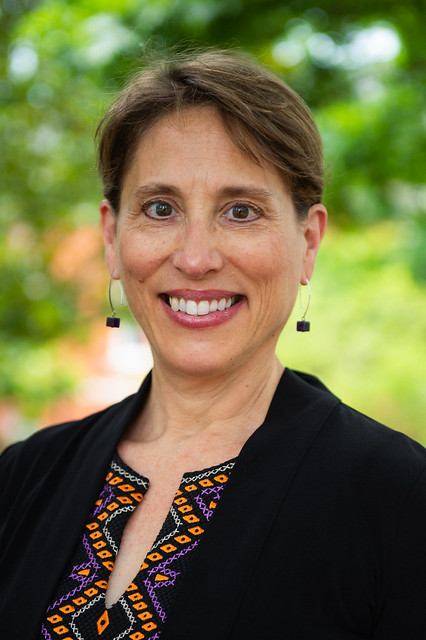Kerpelman named Auburn University’s interim vice president for research
Article body
Jennifer Kerpelman, professor and associate dean for research, graduate studies and outreach in the College of Human Sciences, has been named Auburn University’s interim vice president for research, effective June 1.
An accomplished researcher in the fields of adolescent development and family studies, Kerpelman brings more than 20 years of leadership as a faculty member and higher education administrator to the role, including extensive experience in advancing partnerships with external agencies and private-sector organizations.
“In addition to being a noted researcher and scholar, Dr. Kerpelman is an effective administrator who brings a wealth of experience to advancing Auburn’s research enterprise,” said Auburn President Steven Leath. “This is a critical time for Auburn as we look to expand our research capabilities while bolstering our institution’s role as an economic resource to Alabama. With her diverse array of experiences, I am confident Dr. Kerpelman will carry this important momentum forward.”
Kerpelman’s interim appointment fills the vacancy created by John Mason, outgoing vice president for research and economic development, as he transitions to a new role at Penn State Harrisburg. The university will launch a national search for a new vice president for research in the coming weeks, to be chaired by Calvin Johnson, dean of the College of Veterinary Medicine.
As an associate dean for research, Kerpelman has provided leadership to several initiatives designed to strengthen the university’s culture of discovery, innovation and entrepreneurship, something she looks forward to continuing as interim vice president.
“I am honored to serve Auburn University in this important capacity,” Kerpelman said. “I look forward to capitalizing on our institution’s disciplinary and multidisciplinary synergies in pressing areas such as health sciences, climate and environmental sciences, cyber and technology research and scholarship that addresses rural poverty, in addition to other scholarly areas where our faculty are engaged.”
Kerpelman joined the university in 1999 as an associate professor and extension specialist in the College of Human Sciences. Following her promotion to full professor in 2006, Kerpelman began serving as an associate dean for research and graduate studies. Since then, Kerpelman has helped to steadily increase research funding in the College of Human Sciences, with more than $12 million reported for the past year. Working to enhance external research support for faculty, Kerpelman has provided leadership support to the Center for Health Ecology and Equity Research director and continues to foster strategic collaborations with Human Sciences faculty and researchers across the university.
Since 2015, Kerpelman has provided co-leadership to the university’s Health Disparities Research Cluster, a group of faculty strategically recruited to advance interdisciplinary research that addresses critical health disparities among underserved populations. Other campus initiatives include providing strategic leadership to the AU Health Sciences Research Initiative steering committee, a group that supports health sciences research occurring in every college and school across the campus, and serving as steering committee chair for the This is Research faculty and student symposia.
Kerpelman holds bachelor’s degrees in psychology and therapeutic recreation, a master’s degree in psychology from Old Dominion University and a doctoral degree in human development and family studies from Auburn University. She is author or co-author of more than 200 articles and papers, is a National Council on Family Relations Fellow and is a member of the Society for Research on Adolescence, the International Society for Research on Identity, the National Council on Family Relations and the International Society for the Study of Personal Relationships, among others.
Related Media
Media interested in this story can contact Communications Director Preston Sparks at (334) 844-9999 or preston.sparks@auburn.edu.
Auburn University is a nationally ranked land grant institution recognized for its commitment to world-class scholarship, interdisciplinary research with an elite, top-tier Carnegie R1 classification, life-changing outreach with Carnegie’s Community Engagement designation and an undergraduate education experience second to none. Auburn is home to more than 30,000 students, and its faculty and research partners collaborate to develop and deliver meaningful scholarship, science and technology-based advancements that meet pressing regional, national and global needs. Auburn’s commitment to active student engagement, professional success and public/private partnership drives a growing reputation for outreach and extension that delivers broad economic, health and societal impact.





